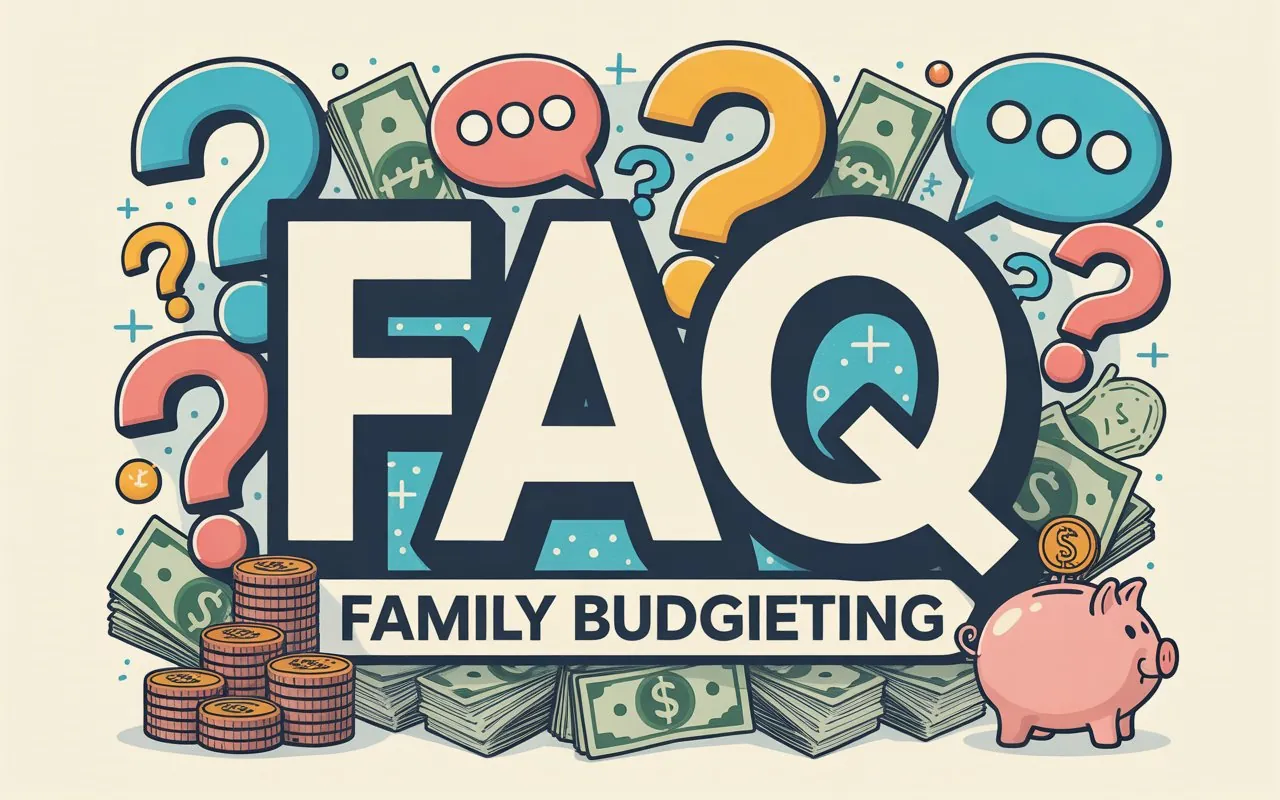Managing the complexities of family finances is often a balancing act filled with challenges, surprises, and many learning opportunities. If you’re searching for trusted family budgeting tips strategies that offer deeper insight and practical, step-by-step solutions, you’ve found the right resource. Here, you’ll discover a comprehensive breakdown of everything from setting shared goals to maximizing savings, with examples tailored to families navigating real-life financial scenarios. Whether you’re in Lagos, Nairobi, or elsewhere, these methods are crafted to help you achieve financial confidence, reduce stress, and foster long-term stability.
In today’s dynamic world—where inflation, new expenses, and unexpected emergencies seem to lurk around every corner—effective money management has become a critical life skill for every family. Rising costs of education, housing, healthcare, and even simple groceries make it essential for households to be intentional about both earning and spending. Without a reliable system in place, families can easily find themselves overwhelmed, living paycheck to paycheck, or feeling unprepared when life throws a curveball.
But the good news is, with the right family budgeting tips strategies, anyone—regardless of income or prior financial knowledge—can take charge and thrive. Budgeting is much more than just tracking rands, dollars, pounds, or naira. It’s about creating a supportive environment where every family member feels part of the process and the vision: saving for that dream vacation, securing top-notch education for the kids, building an emergency fund, or simply reducing daily money stress. Strong financial habits formed today can lead to generational stability, allowing children and grandchildren to benefit from your wise decisions.
This comprehensive guide is designed for real families facing real-world responsibilities—parents seeking to stretch their salaries further, young couples planning a future together, or multigenerational households balancing many needs. With a conversational, practical approach, we’ll cover not just the “what” and “why” of budgeting, but the “how”—in clear, step-by-step sections with concrete examples and handy tools. From popular budget methods to tips for tracking spending, and from creative cost-cutting ideas to involving every household member, you’ll find well-researched, actionable solutions suitable for your unique lifestyle.
Whether your primary goal is to pay off debt, build up savings, or simply reduce arguments about money, our family budgeting tips strategies will put you on the path to financial security. The knowledge you gain here can serve you for years to come, empowering you to respond to any challenge calmly and confidently, together as a family.
So, let’s dive in—and start transforming your household’s finances with proven strategies that genuinely work.
Why Smart Family Budgeting Is Essential
Money isn’t just about numbers—it’s about stability, security, and nurturing dreams for everyone in your household. A family budget gives you:
- Control: Prevents overspending and keeps everyone on the same page.
- Peace of Mind: Prepares you for surprises and emergencies.
- Path to Dreams: Helps set aside money for life’s major milestones: education, a new home, vacations or retirement.
Without proactive family budgeting tips strategies, families can fall into cycles of debt, miss savings targets, or struggle during downturns. Budgeting isn’t about restriction—it’s about designing a life aligned with your values.
Understanding Family Budgeting Tips Strategies: The Big Picture
Before diving into the specifics, let’s look at the overarching principles that make family budgeting effective:
- Holistic Approach: Involves everyone in the household.
- Flexibility: Adjusts as your life and priorities change.
- Transparency: Encourages open communication about money.
- Consistency: Revisit and tweak your strategy regularly.
Goal Setting—The Foundation of Every Family Budget

Why Set Family Financial Goals?
Every meaningful budget begins with clear, measurable goals. Setting goals:
- Aligns Priorities: Everyone understands what’s important.
- Boosts Motivation: Achieving even small milestones creates momentum.
- Guides Spending: Keeps you focused and less tempted by impulse purchases.
Actionable Example: Imagine a Lagos family aiming to save ₦1,200,000 for a holiday in 12 months. They break this into a monthly goal of ₦100,000. Progress is tracked on the fridge weekly, with a reward night when targets are hit.
Practical Steps to Create Family Financial Goals
- Gather as a Family: Hold an initial meeting to brainstorm dreams (school, car, travel, home renovations).
- List and Prioritize: Rank goals by urgency, cost, and impact.
- Make SMART Goals:
- Specific (e.g., save ₦500,000 for school fees)
- Measurable (trackable progress)
- Achievable (realistic with income)
- Relevant (matters to the whole family)
- Time-bound (set deadlines)
- Assign Responsibilities: Give each household member a role, like tracking savings or researching deals.
- Review Monthly: Celebrate wins and recalibrate if needed.
Pro Tip: Set up a shared family spreadsheet or use a whiteboard for transparency and real-time updates.
Tracking Income and Expenses—Know Where Every Naira Goes

Methods for Monitoring Family Finances
Tracking what comes in and goes out is crucial. Explore several accessible methods:
- Budgeting Apps: Try tools like Mint, Goodbudget, or local options that suit Nigerian banks.
- Spreadsheets: Customize your own for maximum control.
- Pen and Paper: Ideal for those who like physical tracking—keep a spending journal.
Making Expense Tracking a Daily Habit
- Step 1: Record expenses daily—no amount is too small.
- Step 2: At week’s end, categorize (groceries, school fees, utilities, transport, dining out).
- Step 3: At month’s end, analyze patterns. Are you shocked by how much is spent on entertainment or snacks?
Real-Life Example: The Okon family noticed recurring ATM withdrawal fees and switched to using their bank’s free online payments, saving ₦2,400 monthly.
Dealing with Irregular Income
Many families, especially freelancers or those with seasonal work, need special strategies:
- Base Budget: Plan around the minimum monthly income.
- Create a Buffer: Save extra during high-income months for lean periods.
Idea: Use a separate account for surplus months to avoid dipping into funds meant for necessities.
Choosing the Right Family Budgeting Method

Comparing Popular Budgeting Strategies
| Method | Description | Pros | Who it Benefits Most |
|---|---|---|---|
| Zero-Based Budgeting | Allocate every naira; expenses + savings = income | Complete control, detailed | Families who want to optimize every naira |
| 50/30/20 Rule | 50% needs, 30% wants, 20% savings/debt | Simplicity, easy to start | New budgeters, flexible households |
| Envelope System | Physical cash in envelopes per category | Curbs overspending, tactile | Those prone to swiping cards too often |
| Pay-Yourself-First | Save and invest first, then spend what’s left | Prioritizes savings, easy to automate | Families saving for big future goals |
| Value-Based Budgeting | Focus spends on what matters most—cut what doesn’t | Highly motivating | Families who value experiences over things |
Suggestion: Try each method for two months. Review as a family—what works, what doesn’t?
Cutting Costs—Practical Family Budgeting Tips Strategies to Save More

Identifying and Reducing Unnecessary Expenses
Standard advice often says “cut back,” but what does that look like for families?
- Subscriptions: Audit for unused apps, streaming services, or gym memberships.
- Utilities: Bundle services for discounts, use energy-saving bulbs, and unplug electronics.
- Groceries: Make a master meal plan, buy in bulk, take advantage of local markets for produce.
Direct Example: The Adewunmi household saved ₦4,500 monthly by switching to pre-paid energy meters and tracking actual usage.
Fun Challenges to Encourage Savings
- No-Spend Week: Choose one week per month to avoid all non-essential purchases.
- Homemade vs. Takeout: Make family pizzas from scratch together or batch-cook on Sundays.
- Secondhand Challenge: Shop thrift stores or local secondhand sites for back-to-school clothes and supplies.
Renegotiating Regular Bills
- Call service providers—TV, internet, even insurance—and ask for existing customer discounts or bundle rates.
- Shop annual, not monthly. Annual payments for insurance or subscriptions are often cheaper.
Creative Ways To Involve the Kids
- Assign older kids a budget for snacks or entertainment.
- Hold competitions (who can find the best store discounts?).
- Reward smart spending—let savings fund a family treat.
Needs vs. Wants—Building Wise Spending Habits

Teaching Needs vs. Wants (For All Ages)
Discuss as a family: What are non-negotiable (needs) and what can wait (wants)?
- Needs: Rent/mortgage, food, utilities, tuition, transportation, healthcare.
- Wants: Takeout food, upgraded devices, trendy clothes, extra TV subscriptions.
Tip: Let kids make a wish list of non-essentials. Revisit it monthly—do they still want those things?
Practical Tools and Visuals
- Use coloured envelopes or jars labeled “Needs” and “Wants.”
- Patch a family “Dream Board” detailing goals everyone is saving for (holiday, new TV).
Involving the Whole Household—Teamwork In Money Management
Family Meetings: The Heart of Every Budget
- Weekly Review: Sit down together, review spending, celebrate wins.
- Problem-Solving: Address roadblocks (“We went over snack budget—how do we fix it?”).
- Education: Teach kids ages 5+ about coins, bills, and simple math through real-life examples.
Role Assignments
- Assign each person a budgeting role—bill tracker, receipt keeper, price checker.
- Rotate responsibilities each month to foster understanding.
Encourage Openness About Money
Break any silences or taboos around money. Normalize conversations about worries, successes, and mistakes.
“We’re a team! If one of us slips, we help each other bounce back.”
Build Financial Literacy Early
Use games, storybooks, or apps to teach saving and the basics of finance to children. Have older kids plan a mock family shopping trip with a set budget.
Mastering Meal Planning and Smart Shopping
Weekly Meal Planning for Savings & Health
- Map meals in advance; review what’s already in the pantry/freezer.
- Double up recipes to create leftovers for busy nights.
Shopping Tips
- Make a strict, written list—and stick to it.
- Shop in local markets for fresh, cheaper produce.
- Compare unit price, not just sticker price.
- Use loyalty cards sensibly (never buy what you don’t need for a ‘deal’).
Family Involvement
Turn shopping into a lesson in budgeting. Give kids a mini-list and small amount of money.
Example: The Eze family’s children are given ₦1,000 each week; they must choose fruits under budget.
Building (And Growing) An Emergency Fund

How Much Emergency Savings Do You Need?
- Aim for 3-6 months’ worth of living expenses.
- Start with ₦5,000-₦10,000 per month—small efforts add up.
Where to Keep Emergency Savings
- Use a separate, interest-earning savings account.
- Avoid dipping into this except for true emergencies.
Strategies for Consistent Growth
- Set automatic transfers each payday.
- Round up purchases into savings (many apps do this).
- Direct side hustle income straight into your emergency fund.
Involving Kids
Explain emergencies in child-friendly terms. Perhaps: “If something unexpected happens, like an urgent trip to the doctor, this is the money that keeps us safe.”
Leveraging Technology—Family Budgeting Tools and Apps
Digital Budgeting Solutions
- Mint: Free, connects to multiple accounts.
- YNAB (You Need a Budget): Great for envelope-style, goal-driven families.
- Goodbudget: Envelope method in app form.
- Google Sheets/Excel: Ultimate customization; ideal for DIY’ers.
Best Practices for Using Tech
- Set up real-time alerts for overspending.
- Review reports as a family; let everyone, even teens, check the dashboard.
- Backup data monthly—protect your records.
Reviewing and Adjusting—Making The Budget a Living Document
Monthly Reviews—Your Roadmap to Progress
- Check actual vs. planned expenses.
- Celebrate wins—every milestone counts!
- Tweak what isn’t working. If groceries routinely run over, adjust the category.
Handling Mistakes
- Expect occasional setbacks—costly birthdays, vehicle repairs, school fees.
- Forgive, analyze what went wrong, and get back on track.
- Use these instances as learning experiences—not reasons to quit.
Family Budgeting Tips Strategies for Irregular Income and Side Hustles
Strategies For Fluctuating Income
- Maintain a “barebones” budget: what’s the minimum needed to get by?
- Save windfalls (like bonuses or gifts) for lean times instead of spending immediately.
Embracing Side Hustles
- Document all household side gigs—Uber driving, freelance work, tutoring, selling goods.
- Allocate a portion of this income to both spending and savings goals.
Managing Money Disagreements and Building Consensus
Tips for Harmonious Communication
- Set ground rules: no blaming or shaming.
- Use “I” statements: “I feel stressed when we overspend,” not “You always…”
- Schedule regular “finance dates” for couples, separate from family meetings.
Compromise Scenarios
- If you disagree on a major expense (e.g., a new appliance), try waiting one month before purchasing or setting a spending cap.
Handling Differences in Money Personalities
- Spender vs. Saver: Collaborate by setting “fun money” for each person.
- Risk-taker vs. Security-seeker: Balance high-return investments with safe savings.
Advanced Family Budgeting Tips Strategies for Growth
Automate Your Finances
- Set bills, savings, and even charitable giving to autopay.
- Reduces risk of missed payments and late fees.
Monitor Credit Scores
- Regularly review credit reports to check for errors or identity theft.
- Teach older children/teens about building and maintaining good credit.
Plan For Major Life Events
- Budget ahead for weddings, school transitions, job changes, or relocations.
- Start saving early—even small, regular deposits compound over years.
Investment as a Family
- Explore safe investment avenues: mutual funds, government bonds, or real estate.
- Educate yourselves together: attend workshops, read books, or consult a financial advisor.
Frequently Asked Questions—Family Budgeting Tips Strategies

Q: How do I keep budgeting from feeling like a chore?
Make it engaging: tie family goals to real rewards, gamify savings, and involve everyone in decisions.
Q: My partner isn’t into budgeting—what do I do?
Start small: share personal wins, suggest a trial run, and focus on shared dreams.
Q: How do I handle sudden, large unexpected expenses?
Rely on your emergency fund first, adjust spending as needed, and replenish savings as soon as possible.
Q: Is there a “perfect” family budgeting strategy?
No single method works for everyone—adapt, mix methods, and keep learning and tweaking as your needs evolve.
conclusion
Implementing these family budgeting tips strategies isn’t just about sticking to numbers—it’s about building a family culture of honesty, responsibility, and possibility. By setting clear goals, tracking spending, reducing waste, involving everyone, and reviewing regularly, you pave the way for security and shared achievement.
Start today: gather the family, pick one new habit, and take the first step toward your financial dreams—with confidence, clarity, and the knowledge you have a plan that works for everyone.